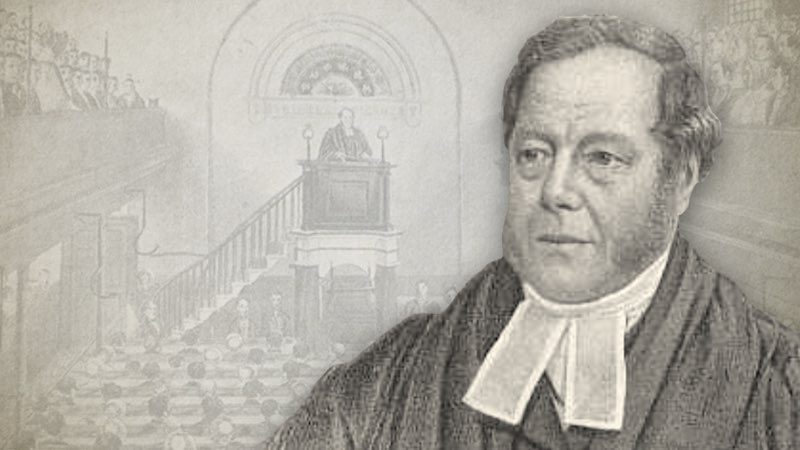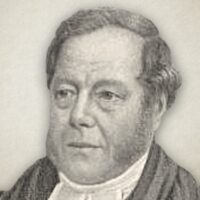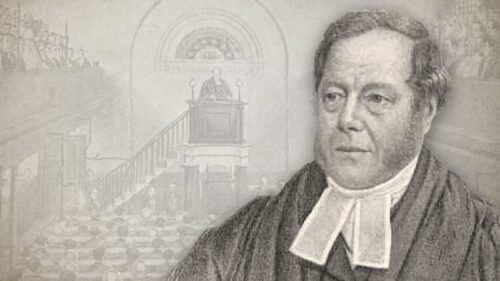
Introduction
If there be any minister of Christ, whose happiness I envy, it is he who is surrounded by a number of young Christians, to whom the Lord has blessed his message so as to effect a divine change in their hearts; such an one has a charge of vast importance, requiring the most vigilant attention, and from which he may reasonably expect the choicest fruit; I can enter somewhat into the anxious solicitude of such an individual, and I am not a total stranger to his pleasures: it is therefore my earnest desire to cultivate, prune, and water the tender plants, from whom I expect the fruits of righteousness.
With this object in view, I present this little volume to the people of my charge, and to the whole household of faith, praying the Holy Spirit to honor it with his special blessing, that the reader may be ‘rooted and grounded in the truth’ and stand unmoved, amidst those winds of temptation, which may beat vehemently upon him, and unshaken; amidst all the convulsions which may yet be felt by the church of Christ.
Such a work as this may seem unnecessary, when so many systems of divinity are extant; but, there are two important objects to which I have turned my attention in these pages, which have been overlooked by all the authors I have seen on doctrinal points, viz. brevity and experimental evidence; it is therefore attempted in the following letters to give a clear and condensed view of gospel truth, in an experimental form that the reader may, under the divine blessing, have his heart warmed, while he gets his mind instructed; finding the undeniable proof of every doctrine in his own experience.
“He that believeth hath the witness in him self” and my hope is, that I shall be instrumental in making that witness speak in the Christian’s breast, the very language which the Holy Spirit has spoken in his word; so that the distinguishing doctrines of grace may not be rejected or held on the mere opinion of man, but bring their own testimony with them, that they are the truths of God which yield the highest glory to himself, and impart the most solid peace and satisfactory pleasure to every awakened sinner.
The early experience of a child of God is of high importance, and much of the happiness of after years depends upon embracing right principles in spiritual infancy. The mind just awakened to serious concern is susceptibly of impression, and eagerly grasps every thing that presents itself in the form of religion, without being capable of discerning good, and evil: hence the necessity of obtaining an early acquaintance with the divine plan of salvation, to fortify the young believer against the errors by which he is surrounded.
It would be difficult to persuade me, that, an experimental acquaintance with doctrines is dangerous to the interest of godliness, and moral excellence, because I have abundant evidence to the contrary, both in my own heart and in many living witnesses; nay, the very suspicion is an insult to God—a piece of popish policy—a libel upon scripture, invented by satan to strengthen the cause of infidelity.
I write as “a teacher of babes,” anxious to communicate to the minds of young Christians, the sacred pleasures with which my own soul has been indulged; and it is natural for me to suppose, that the same effects will be produced by the same cause; nor can l conceal the fact, that my happiness arises from the very truths which form the substance of these pages, all of which have been rendered precious to my soul by the spiritual advantage they have yielded.
There are many who are far advanced in years who are yet but children in spiritual knowledge, and I trust, I, may offer a little assistance to these without presumption, while I am willing to sit at the feet of my fathers in Christ to gain instruction for myself, and still more anxious to sit at the feet of Jesus and lean of him.
The summit of my official emulation is to be a living instance of the fulfillment of God’s promise to his church, “I will give you pastors according to mine heart, which shall feed you: with knowledge and understanding,” Jer 3:15, and to be able to say in a dying hour, as Paul said to the elders of the Ephesian Church, “I kept back nothing that was profitable.” Reader, while you peruse the following pages, look up to the Holy Ghost for his blessing to rest upon you, and upon your soul’s well-wisher,
Joseph Irons
Grove Chapel, Camberwell
January 1, 1823
Joseph Irons (1785-1852) was an Independent sovereign grace preacher, author and hymn writer. In 1819, he was appointed the minister of Grove Chapel, Camberwell, a position he held until his death thirty-three years later. John Hazelton wrote of him:
“Joseph Irons (1785-1852) was one of the ablest preachers of his day, and a powerful and prolific writer. His doctrinal teaching was pellucidly clear and consistent; he was a profound student and sound expositor of the Word of God, and many were influenced by his sermons, spoken and printed, and confirmed in the faith of God's elect. He was a determined foe of Romanism and Ritualism, deeply interested in the welfare of the young, and ready to aid any effort that commended itself to him on the basis of the faith for which he so earnestly contended. Many of his hymns have secured a permanent place in our hymnology, and his sermons are doctrinal, experimental, and practical in the best sense of the words. He never ceased to preach Christ, making Him the Alpha and Omega of all his discourses. He was born at Ware, in Hertfordshire, and brought up under the care and counsel of a godly father, who was a builder, and who trained his son in that trade. When he left his father's roof, he tells us the parting words were, "There's poor Joseph going to that wicked London. My heart bleeds while I bid him goodbye. I fear it will end in his ruin. You will be far away from a father's eye and a father's counsel, but never will I cease to pray for you that God may preserve and prosper you, although surrounded with so much that is evil." The youth was but eighteen when, in 1803, God led him to the Church of St. Mary Somerset, Thames Street, to hear W. Alphonsus Gunn, and there the arrow was directed into his conscience and he was brought to a saving knowledge of Divine truth. In 1808 his first sermon was preached over a smith's shop at Dulwich; he was actively engaged in business, but on most Sundays would walk from ten to twenty miles, preaching in various villages. "My only companions were my pocket Bible and its Divine Author, who often favoured me with the spirit of prayer on the way and shed many a ray of Divine light on the inspired page, so that I was furnished with a 'Thus saith the Lord.'"
After six years' service in Hertfordshire, he became pastor of the Church at Sawston, near Cambridge, and in January, 1818, he preached his first sermon in Camberwell. Ultimately, Grove Chapel was erected and opened on July 20th, 1819, and within its walls until the time of his death he continued proclaiming the Gospel; his mortal remains rest in a vault under the pulpit. In his last sermon, about ten days before his decease, he spoke of heaven in joyful terms: "I confess that my soul longs for it, and I anticipate meeting with prophets and apostles and patriarchs, and above all, with Jesus Himself, to behold Him face to face in glory, to be like Him, and to see Him as He is."
His published writings were numerous, some running into many editions. "Jazer," letters on Gospel doctrine; "Nathaniel," letters on Christian experience; "Nymphas," an exposition of the Song of Solomon; 611 original hymns; and a paraphrase of the Book of Psalms, are among the number. He established a Home Mission and other Societies for visiting and assisting the sick poor, and to the end of his life he was one of the best friends and helpers of the Aged Pilgrims' Friend Society. This great man was no idler in the Lord's vineyard. He talked not about "working for Christ," but delighted to magnify his glorious Lord. His sermons should be models for our preachers to-day in their perspicuity, plainness and power. He could not cut and trim to the times. His faithfulness gave offence to many whose creed and conduct could not bear the blaze of truth and the pointed appeals he made to conscience. Many hard speeches were made against him, but he remained unmoved as an iron pillar. As a man he had very tender feeling and often smarted under the unkind treatment of those of whom better things might have been hoped; but neither the fawning of one party nor the frowns of the other could shake his firmness. When at home in his "Shepherd's Tent," Grove Lane, he used very frequently to visit his chapel; to him it was a peaceful, private promenade, after the close confinement of his study, in which he spent many hours every day. Covenant love, covenant blood and covenant grace were his constant theme. His dying desire, so graciously fulfilled, was that Grove Chapel "might never be desecrated with another gospel." Someone told him that he put too much in his sermons and should reserve ideas for future use. He replied, "Thank God I obtain my materials from heaven; my Master knows what things I have need of, and having called me, He will not allow me to work alone. I get my sermons on my knees with the Word of God before my eyes and if I empty my seed-basket to-day, I know He will fill it to-morrow; therefore I will, God helping me, tell it all out, or it would be like a fire in my bones, burning its way out." Grove Chapel recalls many memories of those who have gone before; in its schoolroom is a unique collection of portraits of free grace ministers of various sections of the one Church. In No. 5 pew in the Chapel is the spot where the Lord first met with the "Wayside Notes" writer, broke him down in contrition of heart and revealed Christ to him as all his salvation, and there are friends still with us who can testify to the power of Mr. Irons' ministry, when in their early years they sat under it.”




